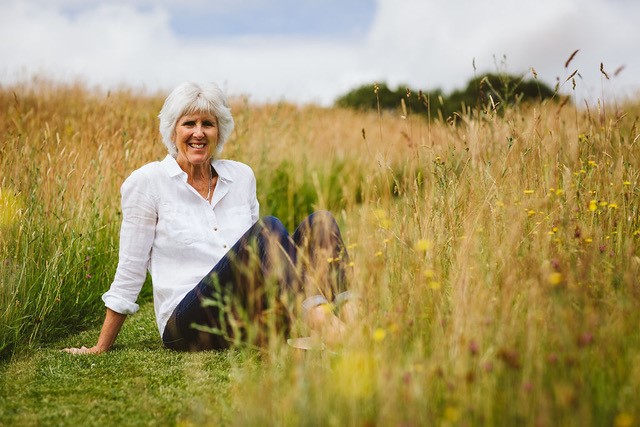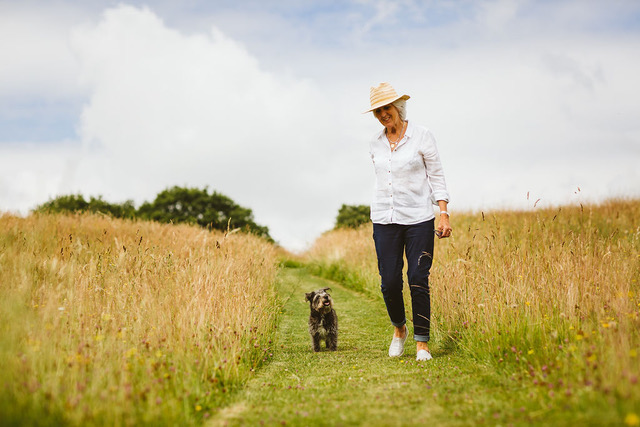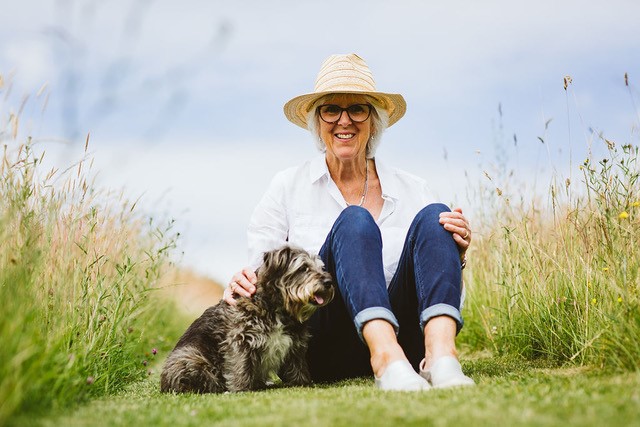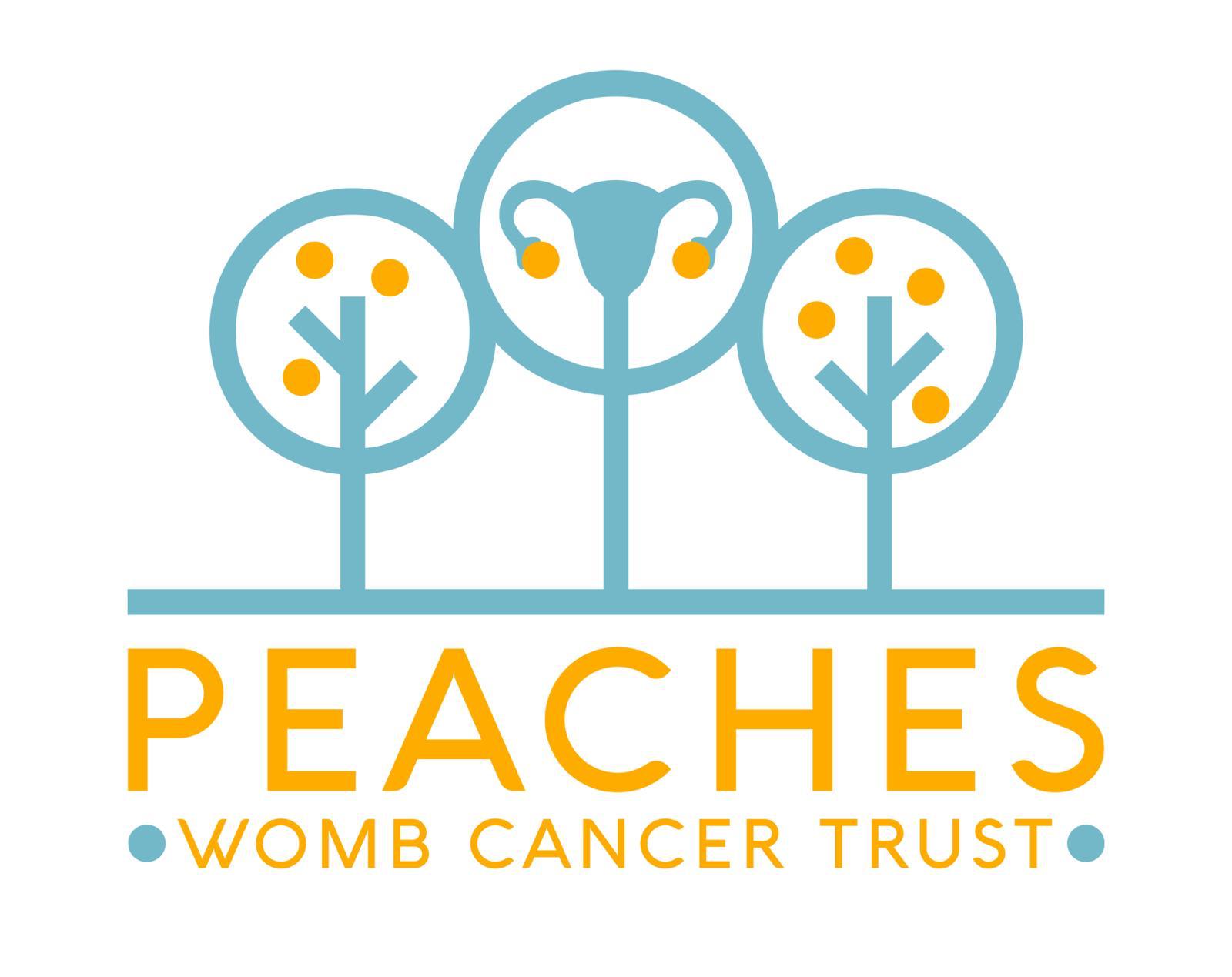A Personal Journey after Womb Cancer Diagnosis
Lavinia’s Story Part III

Lavinia Winch
YES Ambassador
This is the final part of a series of three blogs written by Lavinia about her womb cancer experience.
We were delighted that Lavinia joined us alongside Julia Pugh, a psychosexual therapist, for an evening webinar on intimate health changes and sexual wellbeing after womb cancer treatment in May. You can watch the webinar here.
Intimate health issues are extremely common following womb cancer treatment and are often not discussed or addressed. The webinar explored and offered advice on some of these issues.
Lavinia will also be speaking at our Living Well Event on Thursday 22nd September, you can find more details on the Event Page.
Lavinia’s Story Part III
Seeking help & support for sexual health & wellbeing after womb cancer treatment
In Lavinia’s Story Part II I shared my own personal journey of sexual recovery following my womb cancer diagnosis and surgery. I am very aware that I was extremely lucky that my cancer was diagnosed very quickly and with a Grade 2, Stage 1a tumour, it was decided that I would need no further treatment following my radical hysterectomy. I explained that, for me, with the removal of the cervix and the very top of the vagina, in addition to the existing post-menopausal symptoms such as vaginal dryness and low libido, full sexual intercourse was a challenge. I had to accept that I had received a life-changing diagnosis, acknowledge the changes to my body, and discover the new me.
Many women both young and more mature may receive follow-on treatment including chemotherapy and radiotherapy which can cause long-term side effects impacting sexual health and wellbeing. These can be both physical and psychological.
I believe it’s really important for women to be given some information about the side-effects of treatment and sign-posted towards help and support. In 2015 at the time of my diagnosis, I had a lovely gynae-oncology nurse who I could call at any time prior to my surgery. She was newly qualified and not confident enough to ask me about this aspect of my recovery. However, I asked my surgeon at the follow-up appointment for an examination due to experiencing some pain and discomfort during sex. He seemed quite surprised to be asked this but reassured me that everything was as it should be following surgery. Recently, while giving a talk to a local gynae-oncology support group, I met up again with the same lovely nurse. Seven years on from our first meeting, she now regularly opens the conversation with her patients about their sexual health and wellbeing and provides support and guidance. This is a very welcome change, and it would be brilliant if every woman could receive this level of care following womb cancer treatment, so they don’t have to suffer in silence or feel too embarrassed to raise the topic.
If, following recovery from surgery, sex feels painful, it is important to ask for an examination to ensure that the healing process is complete. Vaginal dryness is a common menopausal symptom and may be more severe following radiotherapy. The tissue can become atrophied meaning it is thinner, more fragile and easily torn and less elastic due also to the lack of estrogen as a result of the removal of the ovaries. It is not surprising therefore that penetration can be painful. The first solution is to use a non-hormonal vaginal moisturiser daily to re-hydrate dry and damaged vaginal tissue. After, at the very least, a couple of weeks, then it may be possible to consider some sexual activity, but many women feel more comfortable using a dilator or vibrator initially in order to discover the depth that feels just right for them and to rediscover pleasure. Plastic dilators are available on prescription but few women I have talked to find these helpful. There are now some beautifully made silicone, safe and user friendly products available. These devices should be used with a water, or oil-based natural lubricant formulated to be gentle for sensitive vaginal tissue. It is best to avoid products that contain glycerine, glycols, parabens or perfume as they can cause irritation.
If non-hormonal vaginal moisturisers and lubricants do not provide sufficient relief from the symptoms of vaginal atrophy and painful sex, local, vaginal estrogen is available in the form of tiny pessaries/tablets, creams, ovules and a gel. This form of treatment may be recommended after treatment for womb cancer, but each patient must be individually assessed by their oncologist and advised accordingly. The suitability will most likely depend upon the analysis of the tumour and the stage of the cancer.
Wondering if any guidelines have been developed for the use of estrogen after gynaecological cancers since my diagnosis and treatment, I asked Dr Kathryn Clement, Consultant Gynaecologist with special interest in menopause care at Newcastle upon Tyne NHS Foundation Trust. She explained that she is on the guideline development group for the use of HRT after gynae cancer, but because there is very little data available and because all of the different specialties – oncology, gynaecology, menopause specialists have to be involved, the process is understandably slow. On the topic of vaginal estrogen, this was her response:
“After discussion of risks and benefits vaginal estrogen can be used for women with prior history of endometrial cancer”
I received clearance from my surgeon to use both an estrogen patch to help with other post-menopausal symptoms, and vaginal estrogen. I also use YES VM vaginal moisturiser two or three times a week and YES OB oil-based lubricant for external vulval comfort.
Vaginal moisturisers and some moisturising lubricants have been available on prescription for many years, however, due to the funding crisis within the NHS there is a move towards removing these products from local formularies resulting in women having to pay for these products at a time when they may be suffering from a huge financial burden due to their cancer.
I want to raise awareness of this issue because I feel that cancer patients, already suffering from the side effects of treatment, may be prevented from a free prescription for non-hormonal products which can offer relief. In the past, all forms of vaginal estrogen have only been available on prescription so if recommended, can be prescribed free of charge for cancer patients with a medical exemption certificate. A new brand of vaginal estrogen has recently been approved for dispensing in pharmacies without a prescription, but with an exclusion criteria of previous gynaecological or breast cancer. This is ‘Gina’ (Estradiol 10mcg from Novo Nordisk) and this is identical to Vagifem – a well-known and well trusted type of estradiol vaginal tablet.
I wrote about what I perceive to be discrimination against post-menopausal women who prefer not to use hormonal products, and women who have had cancer and may be prevented from doing so, for Menopause Matters in 2019 – you can read the article here. If your GP declines your request for a vaginal moisturiser on prescription you may need to push gently for your right to a free prescription.
I feel it’s important that every woman has the right to support and help with sexual survival following womb cancer and I have put together here a list of resources available:
Macmillan Gynae-Oncology Nurse Specialist Service. This service should be available at your hospital or cancer treatment centre.
Macmillan Cancer Support also has some helpful advice on their website. If you feel you need further helpful such as access to a counsellor, it is worth asking if there is provision at your hospital. If not, then you can find a therapist through COSRT, The College of Sex and Relationship Therapy.
You can also find a psychosexual therapist through the IPM, Institute of Psychosexual Medicine.
Samantha Evans, the co-founder of Sex Toy Company, Jo Divine has written many articles about cancer and sex and is happy to help with advice on products such as dilators and vibrators and offer general information.
I strongly believe that knowledge and information is empowering when it comes to managing our health. After treatment for cancer, it can feel challenging to ask for help with very personal and intimate symptoms which are not as a result of the disease itself, but of the treatment. I hope that by sharing my own experience and providing useful information I have in some way helped others to find their own way to rediscovering pleasure and sexual recovery after womb cancer.



